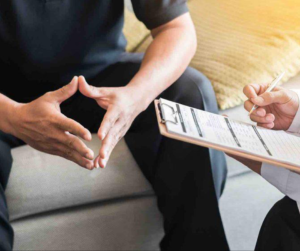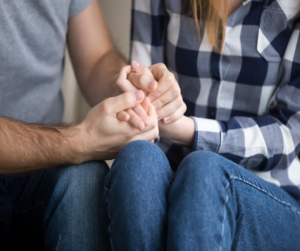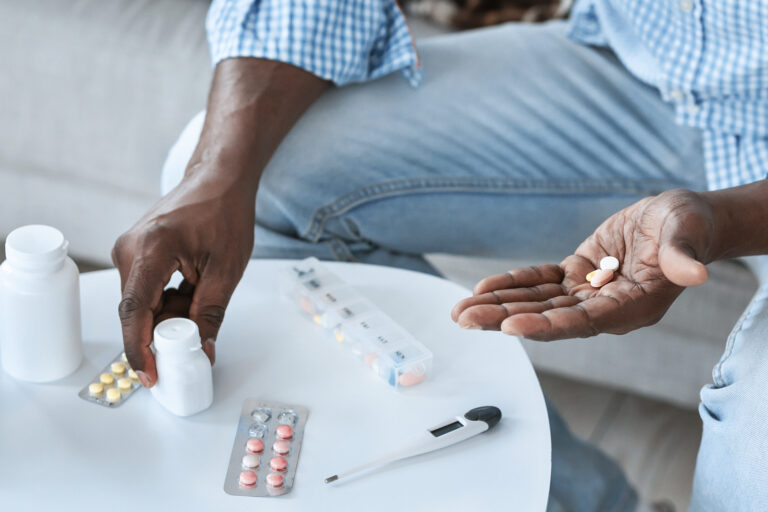Wasatch Recovery Treatment Center
Mental Health
What are 5 symptoms of anxiety?
Signs and Symptoms
- Feeling restless, wound-up, or on-edge.
- Being easily fatigued.
- Having difficulty concentrating; mind going blank.
- Being irritable.
- Having muscle tension.
- Difficulty controlling feelings of worry.
- Having sleep problems, such as difficulty falling or staying asleep, restlessness, or unsatisfying sleep.
- What causes anxiety?
- Difficult experiences in childhood, adolescence or adulthood are a common trigger for anxiety problems. Going through stress and trauma when you’re very young is likely to have a particularly big impact. Experiences which can trigger anxiety problems include things like: physical or emotional abuse.
- What does anxiety feel like?
- Common anxiety signs and symptoms include: Feeling nervous, restless or tense. Having a sense of impending danger, panic or doom. Having an increased heart rate.
- Is anxiety a mental illness?
- Anxiety disorders are the most common of mental disorders and affect nearly 30% of adults at some point in their lives. But anxiety disorders are treatable and a number of effective treatments are available. Treatment helps most people lead normal productive lives.
How do I stop my anxiety?
Try these when you’re feeling anxious or stressed:
- Take a time-out. …
- Eat well-balanced meals. …
- Limit alcohol and caffeine, which can aggravate anxiety and trigger panic attacks.
- Get enough sleep. …
- Exercise daily to help you feel good and maintain your health. …
- Take deep breaths. …
- Count to 10 slowly. …
- Do your best.
- How can you treat anxiety?
- Medication and talk therapy are commonly used to treat anxiety. Lifestyle changes, like getting enough sleep and regular exercise, can also help. In addition, some research suggests the foods you eat may have a beneficial impact on your brain if you frequently experience anxiety.
- How do I know if I suffer from anxiety?
- To diagnose an anxiety disorder, a doctor performs a physical exam, asks about your symptoms, and recommends a blood test, which helps the doctor determine if another condition, such as hypothyroidism, may be causing your symptoms. The doctor may also ask about any medications you are taking.
- Can anxiety be cured?
- Anxiety is not curable, but there are ways to keep it from being a big problem. Getting the right treatment for your anxiety will help you dial back your out-of-control worries so that you can get on with life.
- Can a person give you anxiety?
- If you suffer from anxiety, you may (or may not) have noticed that certain triggers make it worse. Sometimes these triggers can be daily activities or situations (like giving a big work presentation) but for some people, they can also come in the shape of a person.
Where do you feel anxiety in your body?
Tight Muscles – Anxiety will run tension through the body and impact different muscles. People feel the tightness in other areas. Some will feel it in their neck, jaw, chest, or the stomach. There is no specific area – wherever the brain sends the nerve signals.
Does everyone have anxiety?
The bottom line. Everyone experiences occasional bouts of anxiety and nervousness. Whether it’s the anticipation of a new job, nerves before meeting someone, or the uneasiness you feel when facing a potentially dangerous situation, anxiety is a normal reaction to stress.
What happens to your body when you get anxiety?
In the short term, anxiety increases your breathing and heart rate, concentrating blood flow to your brain, where you need it. This very physical response is preparing you to face an intense situation. If it gets too intense, however, you might start to feel lightheaded and nauseous.
Who is most affected by anxiety?
The groups of people who were most affected by anxiety disorders were women, adults under the age of 35, and people with other health conditions. Around 10.9 percent of adults with cardiovascular disease in Western countries also had generalized anxiety disorder.
What is the definition of depression?
Depression (major depressive disorder) is a common and serious medical illness that negatively affects how you feel, the way you think and how you act. Fortunately, it is also treatable. Depression causes feelings of sadness and/or a loss of interest in activities you once enjoyed.
The four major causes of depression are:
- Family history. Though there are no specific genes that we can look at and trace to depression, if your family members have had depression, you are more likely also to experience depression. …
- Illness and health issues. …
- Medication, drugs, and alcohol. …
- Personality.
- What will happen during depression?
- Depression is a serious mental illness that can interfere with a person’s life. It can cause long-lasting and severe feelings of sadness, hopelessness, and a loss of interest in activities. It can also cause physical symptoms of pain, appetite changes, and sleep problems.
- How do depressions start?
- There’s no single cause of depression. It can occur for a variety of reasons and it has many different triggers. For some people, an upsetting or stressful life event, such as bereavement, divorce, illness, redundancy and job or money worries, can be the cause. Different causes can often combine to trigger depression.
- Can a person be born with depression?
- The depression gene
Scientists believe that as many as 40 percent of those with depression can trace it to a genetic link. Environmental and other factors may make up the other 60 percent. - Is depression a permanent condition?
- Depression is the same way. There’s no cure for depression, but there are lots of effective treatments. People can recover from depression and live long and healthy lives
- What is the prevention of depression?
- Can depression be prevented? You can help prevent depression by getting enough sleep, eating a healthy diet and practicing regular self-care activities such as exercise, meditation and yoga. If you’ve had depression before, you may be more likely to experience it again. If you have depression symptoms, get help.
How can I lift my mood?
Small things you can do every day to improve your mood
- Wake up earlier. Set your alarm to go off 15 minutes before you normally get up.
- Make a friend smile.
- Have a quick tidy up.
- Write a diary entry.
- Smile at the first stranger you see.
- Take a walk.
- Look through old photographs.
How can I be happy?
- Smile. You tend to smile when you’re happy.
- Exercise. Exercise isn’t just for your body.
- Get plenty of sleep.
- Eat with mood in mind.
- Be grateful.
- Give a compliment.
- Breathe deeply.
- Acknowledge the unhappy moments.
What do I do if I'm lonely?
Things to do if you’re feeling lonely
- Start with small talk. Small talk gets a bad wrap, but it’s actually a big part of helping break the ice.
- Hang out with like-minded people.
- Get active.
- Jump online.
- Give ‘yes’ a go.
- Back yourself to fly solo.
- Sit with the feeling of loneliness.
- Write it down.
How do you love yourself?
Steps to Achieving Total Self-Love
- Stop comparing yourself to others.
- Don’t worry about others’ opinions.
- Allow yourself to make mistakes.
- Remember your value doesn’t lie in how your body looks
- Don’t be afraid to let go of toxic people.
- Process your fears.
- Trust yourself to make good decisions for yourself.
How to think positive thoughts
- Focus on the good things. Challenging situations and obstacles are a part of life.
- Practice gratitude.
- Keep a gratitude journal.
- Open yourself up to humor.
- Spend time with positive people.
- Practice positive self-talk.
- Identify your areas of negativity.
- Start every day on a positive note.










